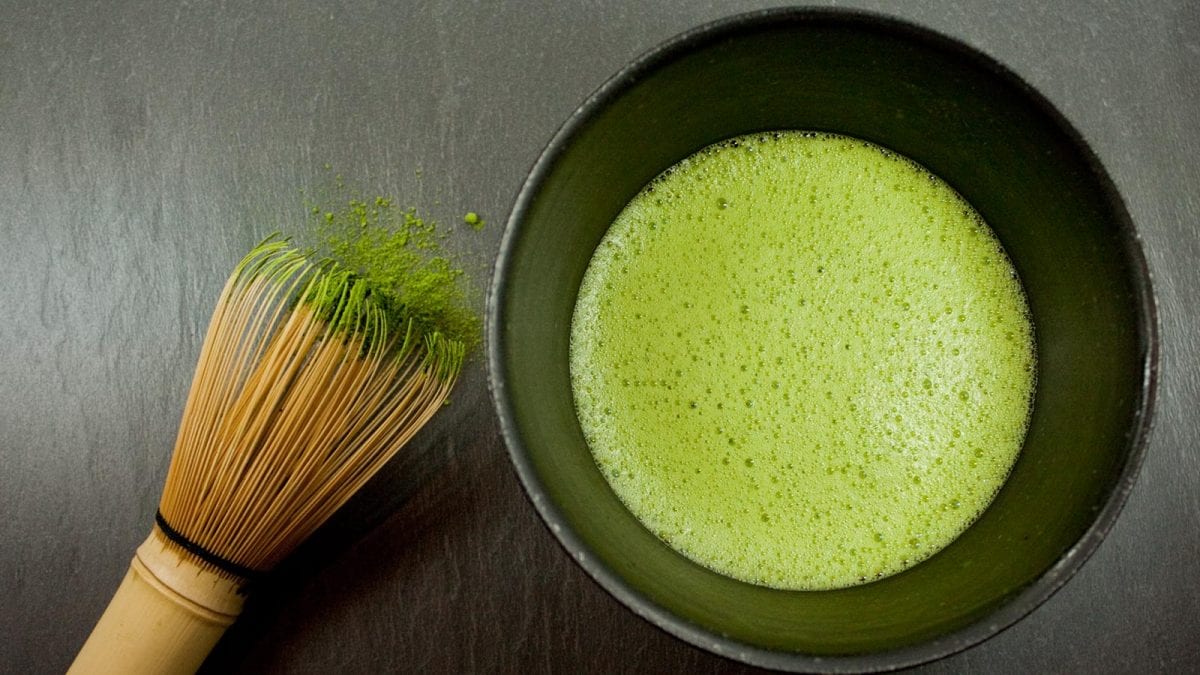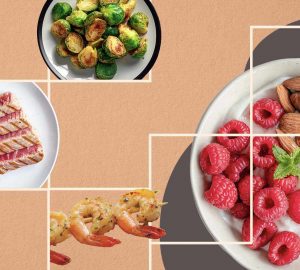About three months ago after returning from a trip to Europe, my wife decided to give up coffee. Actually, any and all caffeine, but coffee was her main stimulant of choice. Being a good husband, I decided to do the same so as to not have any vices around the house for her to be tempted by.
I’ve tried giving up caffeine many times before, but always fall back on my trusted friend in a warm cup to help me get through early mornings or to make it through until bedtime after a busy day. I knew I couldn’t cut it out altogether, but wanted to try something that would eliminate the peaks and valleys of the coffee caffeine roller coaster.
As with most trends, you see the posts on Instagram and Facebook about the benefits of this food or that and have to take some of the claims with a grain of salt. However, I’ve seen the claims about matcha being a more leveled out caffeine stimulant so decided to give it a try.
After a visit to a local organic food store, I picked up what I thought was a good quality matcha (I just picked the priciest one assuming that cost must mean it was the best….) The next morning, I boiled some water and stirred in a teaspoon of the green powder. Then I took a sip…
Probably one of the worst tastes I’ve ever had. Green tea bitterness on steroids is the best way I can describe it. With the wonderful chunky texture of undissolved matcha. I think most of the drink went down the drain that morning.
Now as a matcha virgin, I had no clue that you needed a bamboo whisk, could use almond milk or add honey or other great tasting stuff to your drink. A quick post on my Instagram brought me about a dozen new recipes to try.
I’m not normally someone to give up on anything but after my first matcha experience, I was close. I gave the almond milk and honey a try the next morning after picking up a bamboo whisk. A couple minutes later after steaming the almond milk and mixing in the honey and matcha I sat there looking questioningly at my cup of the frothy, green concoction. My wife had a quick laugh and said, “good luck”.
I have to admit, it wasn’t perfect, but it wasn’t bad. No longer chunky thanks to the bamboo whisk. No longer the watery hot chocolate type flavor you get at a hockey game. It was pretty damn good.
And the best part was that my caffeine buzz wasn’t the crazy, jittery, Kramer (from Seinfeld) buzz, but rather a nice steady alertness that lasted most of the day.
I’ve made matcha my go to in the morning ever since. I’ve tweaked the recipe and included different ingredients from time to time, but like every coffee connoisseur, have come to rely on my tried and tested version.
Matcha serves up approximately 25mg of caffeine per serving (a rounded half-teaspoon), which is roughly a fifth of what you get in a small coffee from Starbucks, which has about 125mg. This is by most standards a very small amount of caffeine, and it is gentle and easily tolerated by most people for whom coffee makes them jittery.
Because matcha’s components in effect slow down the release of caffeine into the body, it typically takes a good three to six hours for this minimal amount of caffeine to be fully absorbed into the bloodstream, in contrast with the caffeine in coffee, which hits the bloodstream in minutes. And yet, you may feel awake (but not jittery) almost immediately upon drinking matcha due to the combo of minimal caffeine and the various phytonutrients in both the soluble and insoluble fibers of matcha leaves.
In other words, matcha doesn’t make you “wired” — it’s a very different experience than the one coffee gives you.
5 Reasons to Give Up Coffee & Drink Matcha
1) Matcha has a better caffeine high. By “better” I mean that coffee’s caffeine high wreaks more havoc on the body. It starts off with a blast, and ends in a crash. Coffee causes spikes in adrenaline glucose and insulin levels, which in turn create jitteriness, nervousness, and, at least for me, often crazy hunger pangs.
Matcha, in contrast, does a better job of creating a calm alertness, with just a quarter the caffeine. There are no spikes and crashes, it just comes on gently and leaves just as gently. No adrenal weirdness, no glucose spike, and no need for pastry; it satiates like nothing else, making it the perfect treat for anyone worried about their weight.
2) Better breath. There really is no comparison here. Matcha is also better for your teeth: it thwarts the bacteria that causes plaque, making it a powerful ally for everyday oral hygiene. Coffee breath and enamel staining? This is a no brainer.
3) Better skin. Ever notice the skin of hardcore coffee drinkers? Matcha helps clear up acne, and has been used for centuries by Japanese women as a facial mask. Matcha’s antibacterial properties help to give skin a natural glow.
4) More antioxidants. Matcha is ridiculously full of catechins, flavonoids, and polyphenols, especially the mighty epigallocatechin gallate (EGCG), which has been linked to so many health benefits and has therapeutic applications to the treatment of so many disorders, including cancer.
5) Great Matcha is WAY easier to make than great coffee is.
Matcha has the reputation of being difficult to make, but seriously: scoop sifted tea into cup, add hot water (or almond milk), and froth. All of 60 seconds to sweet perfection. Great coffee should be measured (20 grams seems to be the most common weight), freshly ground, then steeped or steamed, using a variety of complicated and expensive machinery. And then there’s the waiting for the machine to do its thing.
Needless to say, matcha is not intended to prevent, treat, or cure any disease; it’s just green tea, albeit a very special one that has all kinds of interesting health properties. And because there are no known downsides or side effects to regular consumption of matcha, there is little to lose in making the switch from coffee.
You needn’t give up coffee altogether (unless your doctor tells you to, of course), but do give matcha a try; you have nothing to lose but stained teeth, bad breath, and heart-pounding jitters. And you might have a whole new world of wellness to gain.








